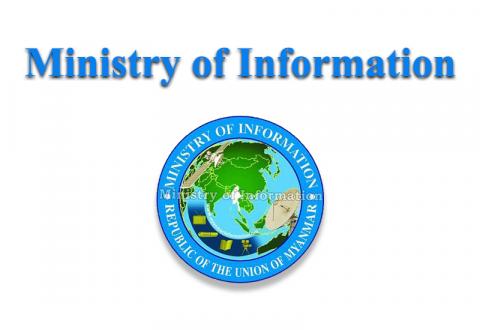Exercise sovereign territorial control while maintaining friendship
RECENTLY, a Member of Parliament from Northeast India and a Manipur State Legislative Assembly member illegally entered Myanmar, making statements and actions that violated the country’s sovereignty. This has caused strong discontent among the people of Myanmar. The government is taking the matter seriously and is working on appropriate measures in response.
India and Myanmar, along with China, were among the initial signatories of the Five Principles of Peaceful Coexistence, first signed in June 1954 at an international conference in Bandung, Indonesia Myanmar has not harboured any entities hostile to India, and likewise, India has not given refuge to groups opposing Myanmar. Myanmar has not sheltered any anti-India entities, and India has similarly refrained from supporting groups opposing Myanmar. Both governments have also engaged in significant security cooperation.
Upon examining the process, it is evident that certain parliamentarians from some states near the Myanmar-India border have politically taken advantage of Myanmar’s internal situation and the conditions along its northwestern border. Regardless, this constitutes a violation of Myanmar’s sovereignty and territorial integrity, necessitating an immediate response. Regarding the Kabaw Valley region, in 2013, India’s opposition party at the time, the BJP, conducted an election campaign promising to reclaim the Kabaw Valley, which includes Tamu, Kalay, and Mingin townships. In response to this issue, residents from Kalay and Mingin townships staged protests to oppose such claims.
The Myanmar-India border extends 1,010 miles, with 907 miles officially demarcated and agreed upon. The Kabaw Valley region has already been surveyed and formally recognized. A Memorandum of Understanding (MoU) on joint border cooperation was signed on 8 May 2014. Disregarding these established agreements and making provocative claims serve only to manipulate national interests.
Despite these tensions, Myanmar and India have successfully collaborated on multiple joint projects. Myanmar actively supports India’s Act East Policy, and diplomatic ties between the two nations remain strong. People from both countries continue to engage warmly and harmoniously. Myanmar and India have always been good friend nations, and up to the present time, both countries continue to maintain friendly relations and collaborate closely.
Certain Indian politicians should avoid exploiting political issues for personal or electoral gains at the cost of bilateral relations. Their actions threaten the long-standing friendship and cooperation between the two nations. It is imperative to respect Myanmar’s sovereignty and territorial integrity, in line with the principles of peaceful coexistence. By adhering to mutual agreements and fostering diplomatic understanding, both nations can continue to strengthen their historic relationship.
#TheGlobalNewLightOfMyanmar

